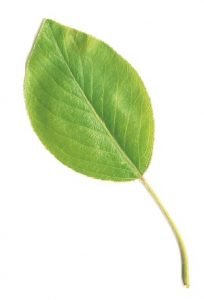The third edition of the Save Food initiative will take place alongside the interpack exhibition in Dusseldorf in May. At the international Save Food Congress on 4 May 2017, speakers from business, science, government and civil society will get together to shed some light on the various facets of the food waste problem. India will be a focal theme this year. In addition to a talk delivered by the Indian Minister of Food Processing Industries, Harsimrat Kaur Badal, a new Save Food study will be presented that has analyzed food losses in India using research case studies. Our readers may recall that some of the initial findings of the food waste research pertaining to several crops and milk in the southern Indian state of Andhra Pradesh were presented at the Packaging, Design, Innovation and Technology conference in Mumbai on 17 December 2016.
 Minister Badal’s talk at the Save Food Congress is titled, ‘Promoting industry and trade – Harvesting and processing basic foodstuffs in India.’ The presentation by Robert van Otterdijk, Agro-Industry Officer, Nutrition and Food Systems Division (ESN), Food and Agriculture Organization of the United Nations is titled, ‘Fighting food loss – Case studies from India.’ Other presentations and panels will discuss the global food losses and waste together with their social, commercial and industrial solutions.
Minister Badal’s talk at the Save Food Congress is titled, ‘Promoting industry and trade – Harvesting and processing basic foodstuffs in India.’ The presentation by Robert van Otterdijk, Agro-Industry Officer, Nutrition and Food Systems Division (ESN), Food and Agriculture Organization of the United Nations is titled, ‘Fighting food loss – Case studies from India.’ Other presentations and panels will discuss the global food losses and waste together with their social, commercial and industrial solutions.
As a Special Forum operated by the trade fair, the Innovationparc will again be entirely dedicated to the Save Food theme. Here partners and members of the Save Food Initiative will present their studies as well as sector- or companyspecific initiatives in terms of ideas and appropriate technologies.
Global food losses and food waste
An overview of the key findings of the study on global food losses and wastage are explained by Dr. Sonesson (SIK):
Roughly one-third of the food produced in the world for human consumption every year—approximately 1.3 billion tons—gets lost or wasted.
Every year, consumers in rich countries waste almost as much food (222 million tons) as the entire net food production of sub-Saharan Africa (230 million tons).
The amount of food lost or wasted every year is equivalent to more than half of the world’s annual cereals crop (2.3 billion tons in 2009/2010).
Food loss and waste also amount to a major squandering of resources, including water, land, energy, labor and capital and needlessly produce greenhouse gas emissions, contributing to global warming and climate change.
In developing countries food waste and losses occur mainly at early stages of the food value chain and can be traced back to financial, managerial and technical constraints in harvesting techniques as well as storage—and cooling facilities. Thus, a strengthening of the supply chain through support to farmers and investments in infrastructure, transportation as well as the appropriate expansion of the food processing and packaging industry could help to reduce the amount of food loss and waste.
 In medium- and high-income countries, food is wasted and lost mainly at later stages in the supply chain. Differing from the situation in developing countries, the behavior of consumers plays a large role in industrialized countries. Moreover, the study identified a lacking coordination between actors in the supply chain as a contributing factor. Farmer-buyer agreements can be helpful to increase the level of coordination. Additionally, raising awareness among industries, retailers and consumers as well as finding beneficial use of food that is presently thrown away are useful measures to decrease the amount of losses and waste.
In medium- and high-income countries, food is wasted and lost mainly at later stages in the supply chain. Differing from the situation in developing countries, the behavior of consumers plays a large role in industrialized countries. Moreover, the study identified a lacking coordination between actors in the supply chain as a contributing factor. Farmer-buyer agreements can be helpful to increase the level of coordination. Additionally, raising awareness among industries, retailers and consumers as well as finding beneficial use of food that is presently thrown away are useful measures to decrease the amount of losses and waste.










